Books
Books
published in 2021

rosa rosa rosae rosae
Produced in conjunction with the exhibition that took place at Maison Pelgrims (10/9-23/10/2021), the book presents original interventions by the artists of the rosa rosae rosae project : Alicia Jeannin, Alicja Melzacka, Angela Detanico & Rafael Lain, Annaïk Lou Pitteloud, Audrey Cottin, buren, Charlie Usher, Eleanor Ivory Weber, Eva Giolo, Henry Andersen, Jan Vercruysse, Maíra Dietrich, Marc Buchy, Maxime Jean-Baptiste, Niels Poiz, Oriol Vilanova, Sabir (Lucie Guien, Amélie Derlon Cordina, Sophie Sénécaut / Perrine Estienne, Kevin Senant, Maud Marique, Pauline Allié, Carole Louis), Slow Reading Club, Sofia Caesar, Surya Ibrahim, Yiannis Papadopoulos, Yoann Van Parys
Edited by Pauline Hatzigeorgiou / SB34
Graphic design by Tipode Office
The book was produced with the support of Fédération Wallonie-Bruxelles (aide à l'édition) and Région Bruxelles-Capitale (Image de Bruxelles)

Gedichten en gedachten in het Frans
Written in La Ferme Arpoix (Ceaux-en-Loudun) and Paris, 1998. Dedicated to Guy.
Staple bound, ltd. to 200 copies. Riso-printed on Munken Pure Rough 120gsm by Risiko Press in Borgerhout, covers silkscreened on Eskaboard by Maarten de With, copy editing by Sis Matthé, design by Kaye & Matthé, typeface: Elementa.
[The title of this book is in Dutch, the text is in French]
"Met dank aan Eliane Van De Velde en Marie-Sophie Beinke."
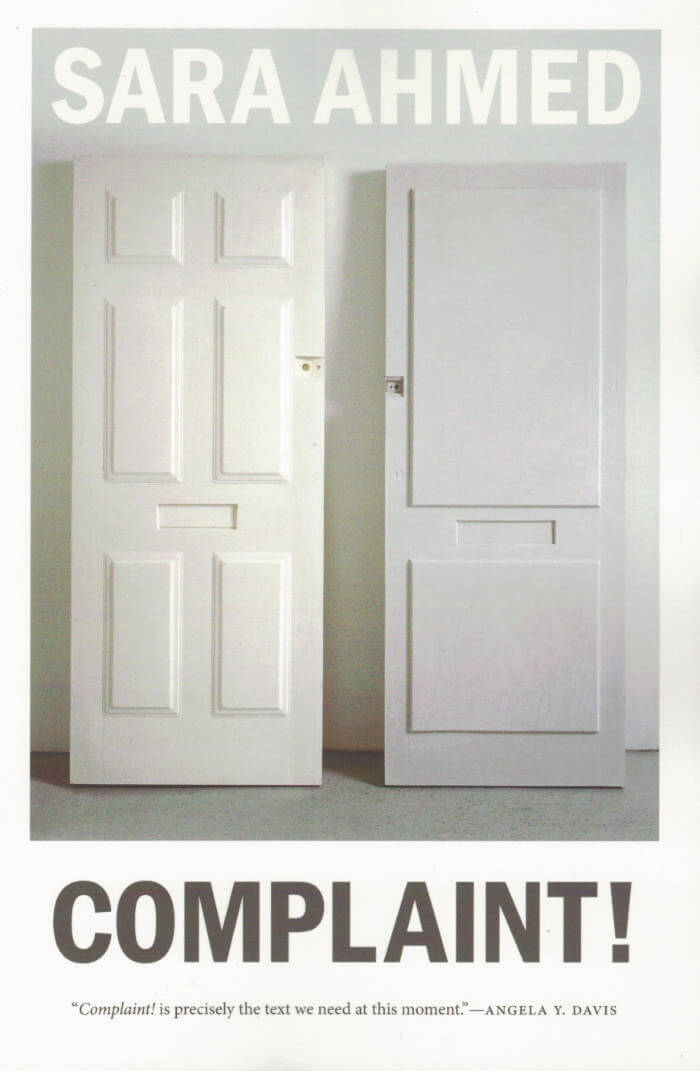
Complaint!
In Complaint! Sara Ahmed examines what we can learn about power from those who complain about abuses of power.
Drawing on oral and written testimonies from academics and students who have made complaints about harassment, bullying, and unequal working conditions at universities, Ahmed explores the gap between what is supposed to happen when complaints are made and what actually happens. To make complaints within institutions is to learn how they work and for whom they work: complaint as feminist pedagogy. Ahmed explores how complaints are made behind closed doors and how doors are often closed on those who complain. To open these doors—to get complaints through, keep them going, or keep them alive—Ahmed emphasizes, requires forming new kinds of collectives.
This book offers a systematic analysis of the methods used to stop complaints and a powerful and poetic meditation on what complaints can be used to do. Following a long lineage of Black feminist and feminist of color critiques of the university, Ahmed delivers a timely consideration of how institutional change becomes possible and why it is necessary.
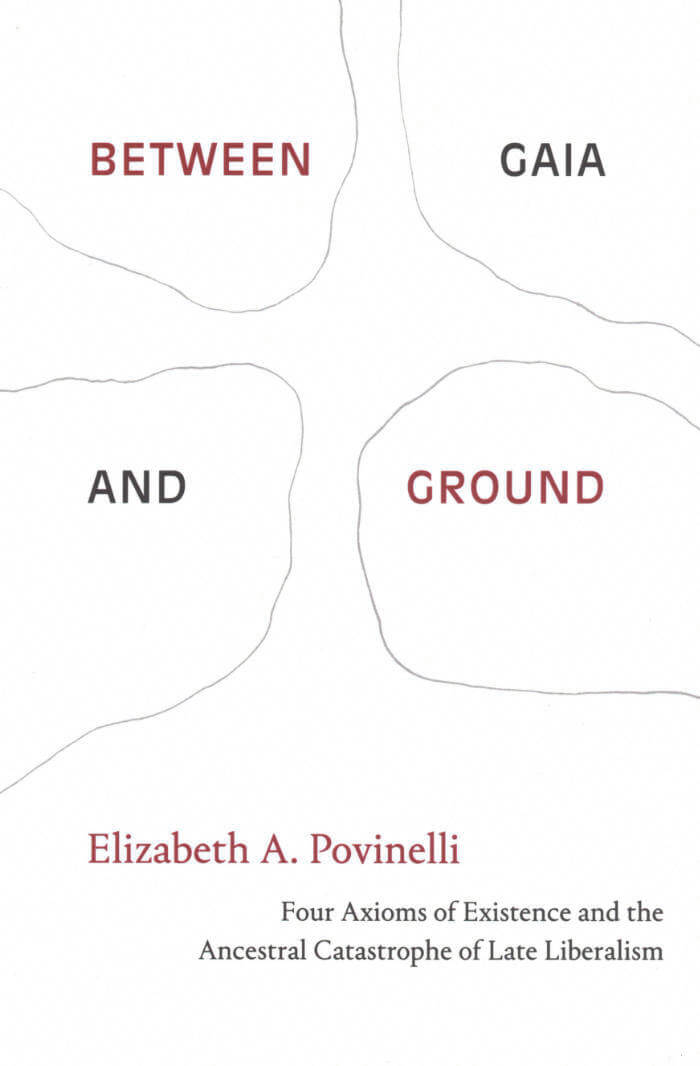
Between Gaia and Ground
In Between Gaia and Ground Elizabeth A. Povinelli theorizes the climatic, environmental, viral, and social catastrophe present as an ancestral catastrophe through which that Indigenous and colonized peoples have been suffering for centuries. In this way, the violence and philosophies the West relies on now threaten the West itself.
Engaging with the work of Glissant, Deleuze and Guattari, Césaire, and Arendt, Povinelli highlights four axioms of existence—the entanglement of existence, the unequal distribution of power, the collapse of the event as essential to political thought, and the legacies of racial and colonial histories. She traces these axioms' inspiration in anticolonial struggles against the dispossession and extraction that have ruined the lived conditions for many on the planet. By examining the dynamic and unfolding forms of late liberal violence, Povinelli attends to a vital set of questions about changing environmental conditions, the legacies of violence, and the limits of inherited Western social theory.
Between Gaia and Ground also includes a glossary of the keywords and concepts that Povinelli has developed throughout her work.
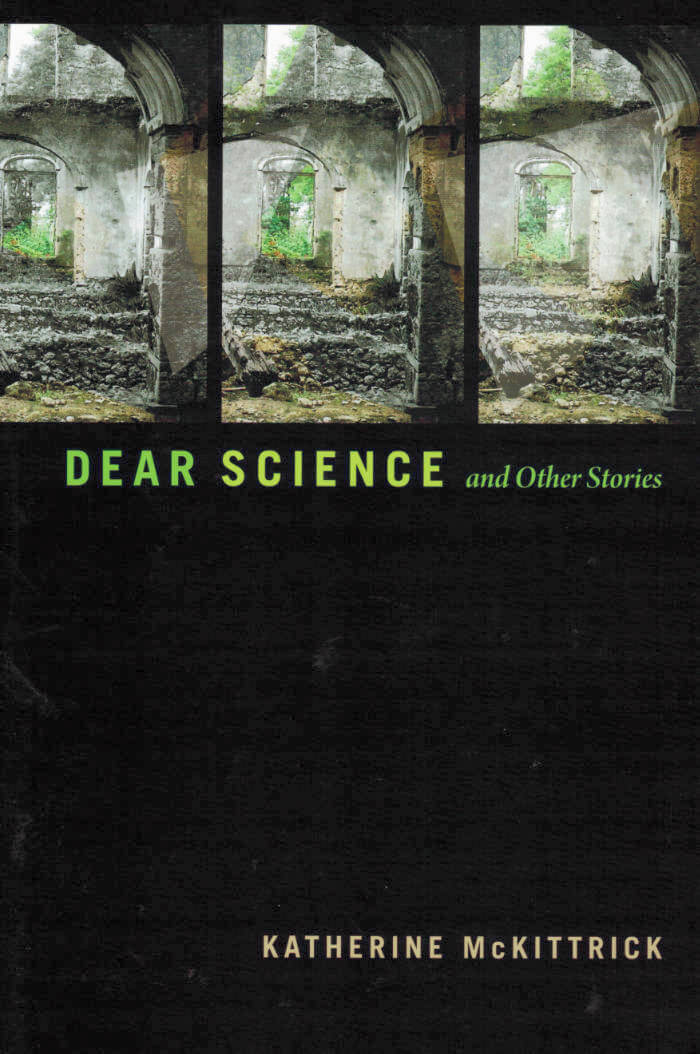
Dear Science and Other Stories
In Dear Science and Other Stories Katherine McKittrick presents a creative and rigorous study of black and anticolonial methodologies. Drawing on black studies, studies of race, cultural geography, and black feminism as well as a mix of methods, citational practices, and theoretical frameworks, she positions black storytelling and stories as strategies of invention and collaboration.
She analyzes a number of texts from intellectuals and artists ranging from Sylvia Wynter to the electronica band Drexciya to explore how narratives of imprecision and relationality interrupt knowledge systems that seek to observe, index, know, and discipline blackness. Throughout, McKittrick offers curiosity, wonder, citations, numbers, playlists, friendship, poetry, inquiry, song, grooves, and anticolonial chronologies as interdisciplinary codes that entwine with the academic form.
Suggesting that black life and black livingness are, in themselves, rebellious methodologies, McKittrick imagines without totally disclosing the ways in which black intellectuals invent ways of living outside prevailing knowledge systems.

Anemones: A Simone Weil Project
The author’s research on troubadour poetry yields this experiment in thinking ‘near and with’ philosopher and political activist Simone Weil. Moving between the epistolary, poetry, performance and scholarly research, it centres on a new translation of Weil’s 1942 essay ‘What the Occitan Inspiration Consists Of’ that elevates the troubadour concept of love to a practice of political resistance rejecting force in all its forms. Robertson dwells on the transhistorical potential of this concept from the violent context in which it emerged to the troubling conditions of the present. Embracing actualised and suppressed histories, the work testifies to words, friendship and readership as resistance across distances.
With a contribution by Benny Nemer
Design: Rietlanden Women’s Office

Maquillage as Meditation: Carmelo Bene and the Undead
Partly a script, partly a personal voyage into the psyche of diseducation, this book happens, has happened and will happen on the 31st of October in a place called ‘The Palace of Melancholy’. In this temporal and spatial loop, the figure of Italian actor, author, director, philosopher, and public persona Carmelo Bene is summoned to hopefully be dismissed once and for all. Bene is looked at by the author reluctantly and yet resolutely through inner voices of dissent, shame and rebellion. He is imagined in gatherings that didn’t happen and read through an epistemology of contradiction. In Giannini’s company and support, Snejanka Mihaylova, Jacopo Miliani, and Arnisa Zeqo probe the walls of the Palace, looking for an exit.

Social Movement: Through the Lens of Performance and Performativity
This publication documents and shares the trajectory of If I Can’t Dance’s engagement with ‘Social Movement’ as the field of inquiry for its seventh biannual programme (2017–18).
Social Movement: Through the Lens of Performance and Performativityinvestigates how performance ontologies around bodily experience, affect and the relational better one’s understanding of social movement – and in turn how that understanding expands performance vocabularies. Divided into three ‘directions’ of movement, ‘gathering’, ‘embodiment’ and ‘care’, the selected theoretical and artistic perspectives are culled from our Reading Group material and from guests on our Radio Emma broadcasts. A keynote lecture by performance and social practice scholar Shannon Jackson, delivered as part of the edition’s final presentations, serves as an introduction.
Contributors: Giorgio Agamben, Selçuk Balamir, Anne Boyer, Judith Butler, Thomas F. DeFrantz, Nell Donkers, Pascale Gatzen, Édouard Glissant, Ayesha Hameed, Sands Joseph Horwitz-Dijks Murray-Wassink, Shannon Jackson, Rudolf Laban, Gregory Lennon, Audre Lorde, Ros Murray, AnnaMaria Pinaka, Tina Reden, Marjan Sax, Rebecca Schneider, Taka Taka, Simone Weil, Nagaré Willemsen; and postcard insert by Reza Mirabi.

Event and Duration
Event and Duration is a collection of texts that offer various perspectives on the notions of ‘event and duration’, and suggest ways that time can be thought and measured otherwise. The selection of texts are drawn from the field of performance studies, philosophy, psychoanalysis, science fiction and the visual arts among others, all of which were read in If I Can’t Dance’s reading groups in Amsterdam, São Paulo and Toronto as part of the artistic programme VI – Event and Duration (2015–16).
Contributors: Octavia E. Butler, Paul Chan, Denise Ferreira da Silva, Elizabeth Freeman, Amelia Groom, The Invisible Committee, R.D. Laing, Henri Lefebvre, Jota Mombaça, José Esteban Muñoz, Peter Pál Pelbart, Paul B. Preciado; and artist pages by Becket MWN.
176 p, ills colour, 15 x 22 cm, pb, English, 2021

Disproof Does Not Equal Disbelief
An unconventional invocation of Michael Stevenson's practice over the past 35 years.
From his refuge in upstate New York—the studio/ living complex where he enacted a late pivot back to figuration—the American painter Philip Guston once offered the following outburst to the question of how such a turn could happen.
"What kind of man am I, sitting at home, reading magazines, going into frustrated fury about everything and then going into my studio to adjust a red to a blue?"
Over time, this sparse utterance takes on an architectural form in the imagination, a model that proposes a tantalizing proposition when fleshed out. The painter's words situate us in two distinct yet adjacent rooms. The first: a lounge with a TV, its live feed constantly aflicker. The second, a space that's more sequestered, which we can simply understand as a place of production: "the studio." Between these spaces, the painter, often working through the night, is also the viewer or reader, shuffling back and forth as he navigates these two rooms. At a certain point, night becomes day, and we shuffle back and forth together, the presence of one room arriving in the other.
Published following the eponymous exhibition at KW Institute for Contemporary Art, Berlin, in 2021.
Described as an “anthropologist of the avant-garde”, Michael Stevenson (born in 1964 in Inglewood, New Zealand, lives and works in Berlin) investigates the mythology that surrounds renowned and controversial events which have been significant in the spheres of both art and politics.
Graphic design: Will Holder

Filipinx: Heritage Recipes from the Diaspora
Angela Dimayuga, Ligaya Mishan
In her debut cookbook, acclaimed chef Angela Dimayuga shares her passion for Filipino food with home cooks.
Filipinx offers 100 deeply personal recipes, many of them dishes that define home for Angela Dimayuga and the more than four million people of Filipino descent in the United States. The book tells the story of how Dimayuga grew up in an immigrant family in northern California, trained in restaurant kitchens in New York City, learning to make everything from bistro fare to Asian-American cuisine, then returned to her roots, discovering in her family's home cooking the same intense attention to detail and technique she'd found in fine dining.
In this book, Dimayuga puts a fresh spin on classics: adobo, perhaps the Filipino dish best known outside the Philippines, is traditionally built on a trinity of soy sauce, vinegar, and garlic, all pantry staples, but add coconut milk, vinegar, and oil, and it turns lush and silky; ribeye steaks bring extra richness to bistek, gilded with butter and a bright splash of lemon and orange juice. These are the punches of flavor and inspired recipes that home cooks have been longing for.
A modern, welcoming resource for this essential cuisine, Filipinx shares exciting and approachable recipes everyone will wholeheartedly embrace in their own kitchens.

Bookmarks of sorts
Afternoon Editions no. 5: a collection of found papers annotated by Jeroen Peeters, titled Bookmarks of sorts. During several years Jeroen Peeters collected notes left by readers in library books: faded reader tickets, scraps with notes, a shopping list, train tickets and other little papers used as bookmarks. He noted each time the date and the book in which they were found. Afterwards he wrote commentaries to this collection, an essay on alternative reading practices, marginalia and extra-illustration, on the exchange between readers and the imaginary community lingering in all those library books.

On the Self-Reflexive Page II
Originally published in 2010, ‘On the Self-Reflexive Page’ is part artist’s book and part essay, part literary excavation and part typographical miscellany. For this second incarnation of Louis Lüthi’s anthology of thematically arranged pages, the original material has been significantly expanded and revised. Like its predecessor, the new version proposes a typology of nonverbal elements found in novels, short stories, and essays. In each of the pages reproduced here, the prose is interrupted by one of these nonverbal elements, from black or blank pages, drawings or collages, photographs or film stills, to fragments of text or visual poems that are distinct from a conventional page layout.
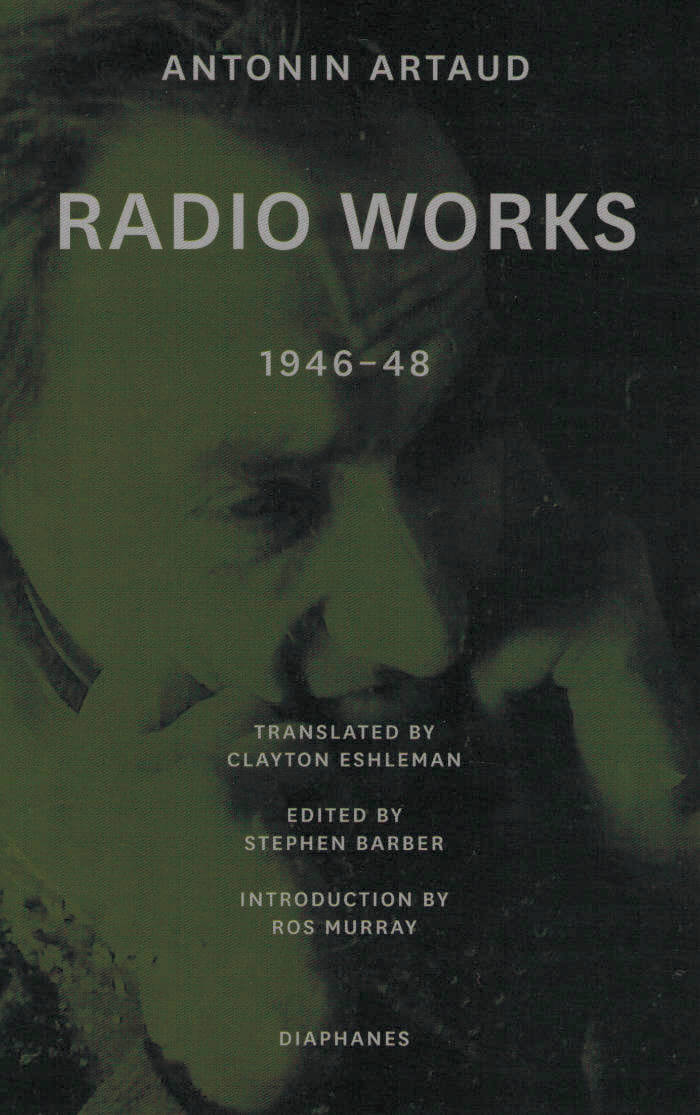
Radio Works – 1946-48
The translated transcripts of two radio broadcasts by Artaud: To have done with the judgement of god (1947-48) and Madness and Black Magic (1946). Correspondences from that period are also included.
In the last two years of his life, following his release from the Rodez asylum, Antonin Artaud decided he wanted his new work to connect with a vast public audience, and chose to record radio broadcasts in order to carry through that aim. That determination led him to his most experimental and incendiary project, To have done with the judgement of god, 1947-48, in which he attempted to create a new language of texts, screams, and cacophonies: a language designed to be heard by millions, aimed, as Artaud said, for “road-menders”. In the broadcast, he interrogated corporeality and introduced the idea of the “body without organs”, crucial to the later work of Deleuze and Guattari. The broadcast, commissioned by the French national radio station, was banned shortly before its planned transmission, to Artaud's fury.
This volume collects all of the texts for To have done with the judgement of god, together with several of the letters Artaud wrote to friends and enemies in the short period between his work's censorship and his death. Also included is the text of an earlier broadcast from 1946, Madness and Black Magic, written as a manifesto prefiguring his subsequent broadcast. Clayton Eshleman's extraordinary translations of the broadcasts activate these works in their extreme provocation.
Antonin Artaud (1896-1948) was a French dramatist, poet, essayist, actor, and theater director, widely recognized as one of the major figures of twentieth-century theater and the European literary avant-garde.

Mix & Stir
Kitty Zijlmans, Helen Westgeest
Mix & Stir, this book’s aim is an endeavour to understand art as being a panhuman phenomenon of all times and cultures; to steer away from the persistent Eurocentric/Western-centric viewpoint towards a transcultural and transnational interconnected model of exchange and processes of interculturalization. Mix & Stir wants to expand this landscape by bringing to the fore new, recalcitrant, queer, idiosyncratic practices and discourses, theories and topics, methods and concerns that open up ways to approach art from a global perspective.
Analogous to a cookery book filled with recipes and instruction, Mix & Stir explores new outlooks on contemporary art from global perspectives. It intends to encourage studying art beyond national constraints, cultural dominances, and hierarchies: a voyage similar to that of culinary discovery. The book brings a variety of tastes and flavours to the table, and breaks new ground by allowing innovative, contrary, queer, idiosyncratic practices and discourses, theories and topics, methods, and concerns to access art in its global dimensions.
Contributions: Thomas J. Berghuis, Elisabeth de Bièvre, John Clark, Thomas DaCosta Kaufmann, Parisa Damandan, Wilfried van Damme, Sophie Ernst, Angèle Etoundi Essamba. Paul Faber, Claire Farago, Anne Gerritsen, Jacqueline Hoàng Nguyễn, Isabel Hoving, Stijn Huijts, Joo Yun Lee, Nancy Jouwe, Remy Jungerman, Sonja van Kerkhoff, Meta Knol, Frans-Willem Korsten, Katja Kwastek, Sybille Lammes, Charl Landvreugd, Gregor Langfeld, Chris Lee, Christa-Maria Lerm Hayes, Virginia MacKenny, Sarat Maharaj, Tirzo Martha, Kyveli Mavrokordopoulou, Larissa Mendoza Straffon, Ni Haifeng, Stéphanie Noach, Anja Novak, John Onians, Rob Perrée, Georges Petitjean, Rosalien van der Poel, Jennifer Pranolo, Lize van Robbroeck, Pippa Skotnes, Henk Slager, Rudi Struik, Eva-Maria Troelenberg, Leonor Veiga, Leon Wainwright, James Webb, Janneke Wesseling, Helen Westgeest, Carine Zaayman, Kitty Zijlmans, Robert Zwijnenberg.
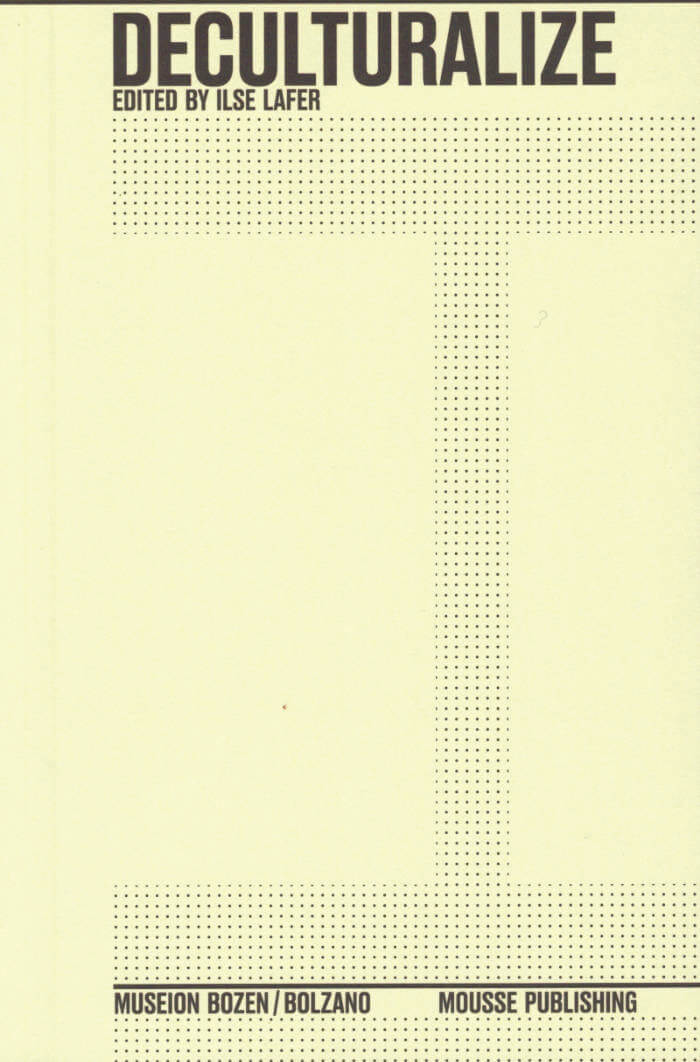
Deculturalize
The radical feminist practice of the Italian art historian, art critic, poet, and feminist Carla Lonzi (1931–1982) and its potential relationship to both historical and contemporary art practices offers the contextual framework for the publication Deculturalize.
Lonzi's recurring demand for deculturizzazione, echoed in the book's title, is based on her proclamation that women's inclusion in society must be understood as a constant colonization. Their ensuing "impotence, lack of history, lack of culture" and "insignificance" can thus only be abolished through the establishment of an "unexpected" (female) subjectivation. Rather than continuing to be the object of historical-social power dynamics, women must become the subject of their own life practices through their continuous withdrawal from (patriarchal) norms.
The book's authors explore if and to what degree Lonzi's radical feminist approach is based on art terms and concepts, or historical or contemporary art practices. The motivation was the exhibition Doing Deculturalization, presented at Museion, Bolzano, in 2019, and the related desire to address the (historically ambivalent) relationship between (Italian) female art and the formation of feminist theory.
Essays by Sabeth Buchmann, Laura Iamurri, Marco Scotini and Elvira Vannini, and Giovanna Zapperi focus on this by analyzing works by women artists whose practices are related to Lonzi's deculturizzazione concept. The contributions by artists Claire Fontaine, Ariane Müller, Margherita Morgantin (in conversation with Lia Cigarini) and Suzanne Santoro (in conversation with Ilse Lafer) present specific reflections on Lonzi's feminist legacy, which is always related to the individual artist's own artistic-feminist practice. Juxtaposed with these are philosophical and analytical concepts developed by Marc Rölli and Annarosa Buttarelli, who reconstruct Lonzi's theory of deculturizzazione based on its historical reference points and update it for the present.
With texts by Sabeth Buchmann, Annarosa Buttarelli, Claire Fontaine, Laura Iamurri, Ilse Lafer, Margherita Morgantin & Lia Cigarini, Ariane Müller, Letizia Ragaglia, Marc Rölli, Suzanne Santoro & Ilse Lafer, Marco Scotini & Elvira Vannini, Giovanna Zapperi.
Trilingual edition (English / German / Italian)

Common Tones – Selected interviews with artists and musicians 2000-2020
The collection of previously unpublished interviews and extended versions of Alan Licht's famous conversations with figures in the American art and musicscene.
For the past thirty years, Alan Licht has been a performer, programmer, and chronicler of New York's art and music scenes. His dry wit, deep erudition, and unique perspective—informed by decades of experience as a touring and recording guitarist in the worlds of experimental music and underground rock—have distinguished him as the go-to writer for profiles of adventurous artists across genres. A precocious scholar and improvisor, by the time he graduated from Vassar College in 1990 Licht had already authored important articles on minimalist composers La Monte Young, Tony Conrad, and Charlemagne Palestine, and recorded with luminaries such as Rashied Ali and Thurston Moore. In 1999 he became a regular contributor to the British experimental music magazine The Wirewhile continuing to publish in a wide array of periodicals, ranging from the artworld glossies to underground fanzines.
Common Tones gathers a selection of never-beforepublished interviews, many conducted during the writing of Licht's groundbreaking profiles, alongside extended versions of his celebrated conversations with artists, previously untranscribed public exchanges, and new dialogues held on the occasion of this collection. Even Lou Reed, a notoriously difficult interviewee also included here, was suitably impressed.
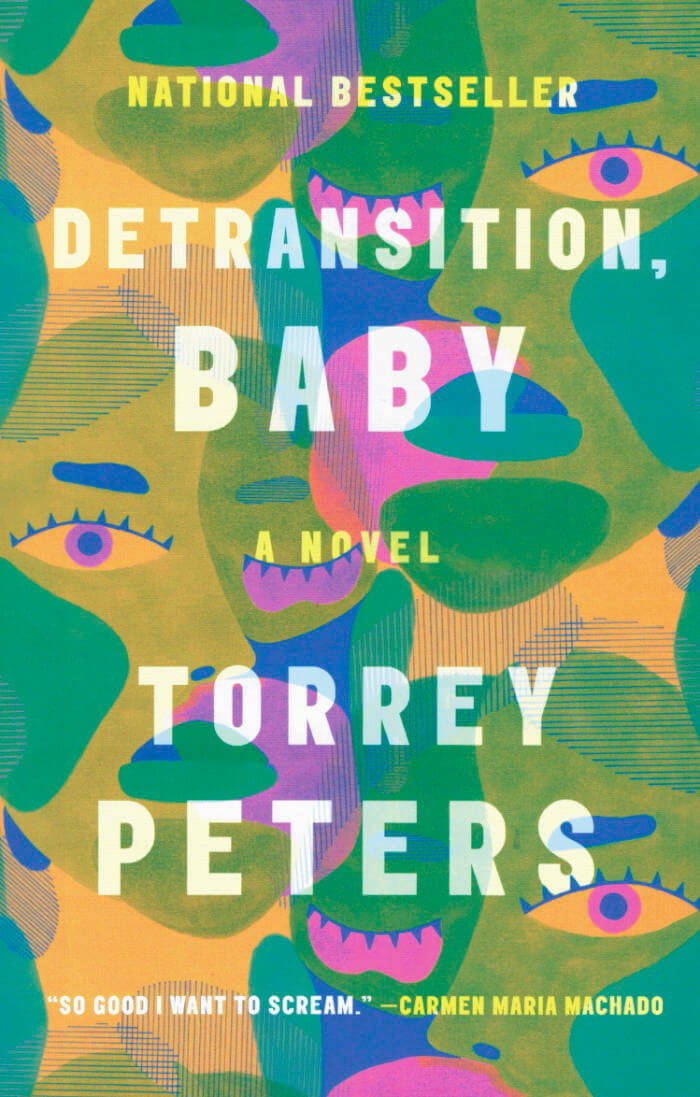
Detransition, Baby (paperback)
A whipsmart debut about three women — transgender and cisgender — whose lives collide after an unexpected pregnancy forces them to confront their deepest desires around gender, motherhood, and sex.
Torrey Peters is the author of the novellas Infect Your Friends and Loved Ones and The Masker, which are available for free on her website. She holds an MFA from the University of Iowa and an MA in Comparative Literature from Dartmouth. She grew up in Chicago and now lives in Brooklyn.
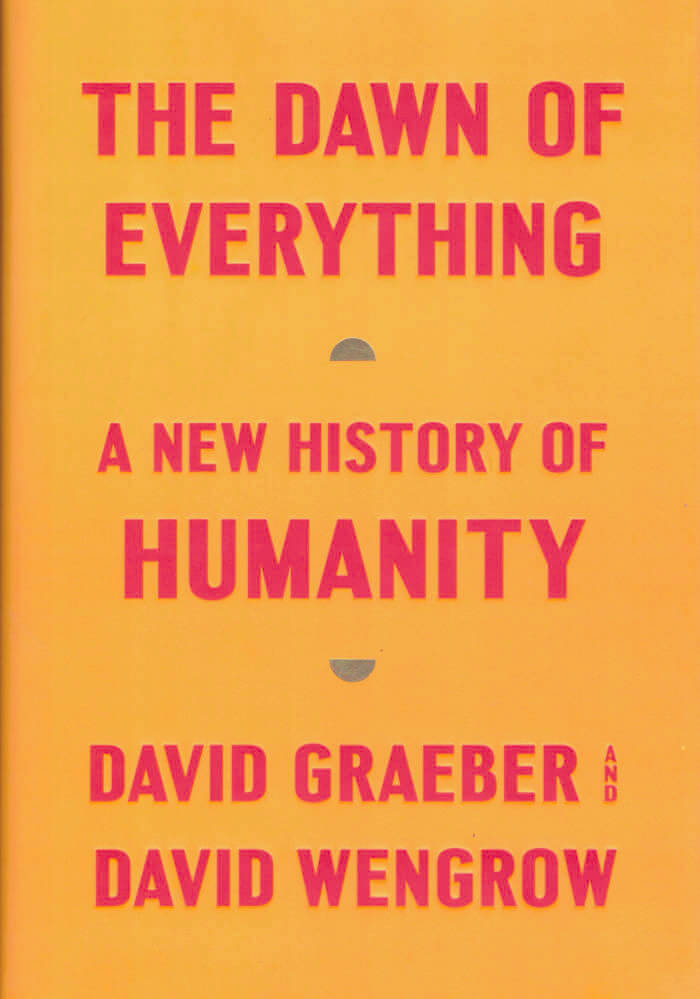
The Dawn of Everything: A New History of Humanity
A dramatically new understanding of human history, challenging our most fundamental assumptions about social evolution — from the development of agriculture and cities to the origins of the state, democracy, and inequality — and revealing new possibilities for human emancipation.
For generations, our remote ancestors have been cast as primitive and childlike — either free and equal innocents, or thuggish and warlike. Civilization, we are told, could be achieved only by sacrificing those original freedoms or, alternatively, by taming our baser instincts. David Graeber and David Wengrow show how such theories first emerged in the eighteenth century as a conservative reaction to powerful critiques of European society posed by Indigenous observers and intellectuals. Revisiting this encounter has startling implications for how we make sense of human history today, including the origins of farming, property, cities, democracy, slavery, and civilization itself.
Drawing on pathbreaking research in archaeology and anthropology, the authors show how history becomes a far more interesting place once we learn to throw off our conceptual shackles and perceive what's really there. If humans did not spend 95 percent of their evolutionary past in tiny bands of hunter-gatherers, what were they doing all that time? If agriculture, and cities, did not mean a plunge into hierarchy and domination, then what kinds of social and economic organization did they lead to? The answers are often unexpected, and suggest that the course of human history may be less set in stone, and more full of playful, hopeful possibilities, than we tend to assume.
"Graeber and Wengrow have effectively overturned everything I ever thought about the history of the world. A thorough and elegant refutation of evolutionary theories of history, The Dawn of Everything introduces us to a world populated by smart, creative, complicated people who, for thousands of years, invented virtually every form of social organization imaginable and pursued freedom, knowledge, experimentation, and happiness way before the "Enlightenment." The authors don't just debunk the myths, they give a thrilling intellectual history of how they came about, why they persist, and what it all means for the just future we hope to create. The most profound and exciting book I've read in thirty years." — Robin D.G. Kelley, Gary B. Nash Endowed Chair in U.S. History, UCLA, author of Freedom Dreams: The Black Radical Imagination
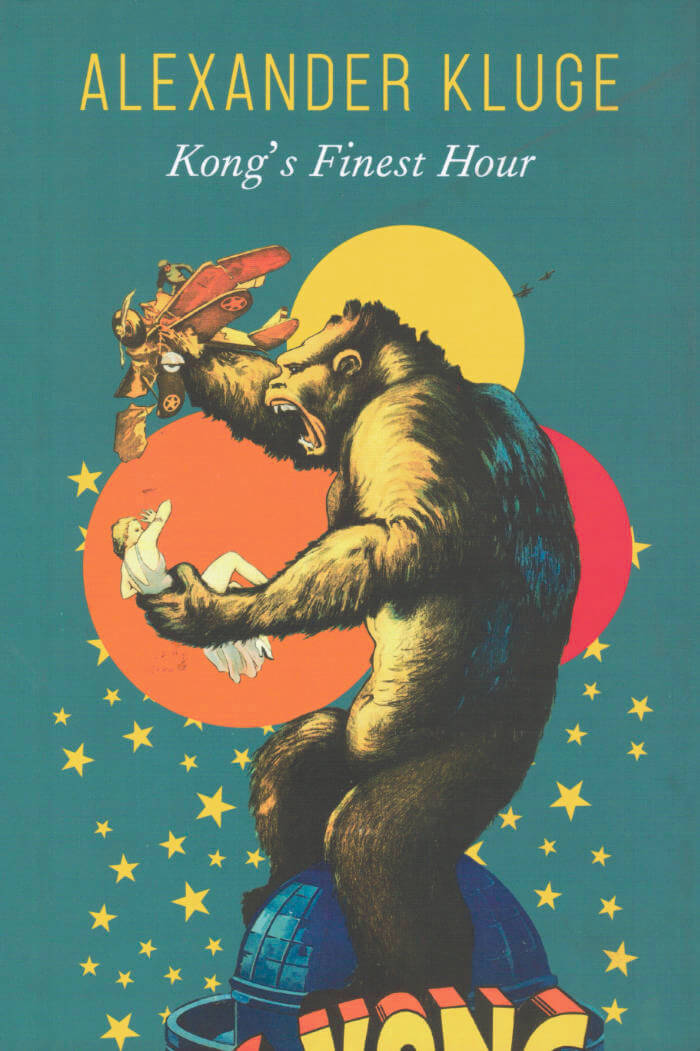
Kong's Finest Hour: A Chronicle of Connections
In a world full of devils, the giant ape Kong defends what he loves the most. But who and what is this undomesticated animal? Might it reside within us? As we tread confidently, is this where the earth opens up beneath us?
In Kong's Finest Hour, Alexander Kluge explores anew the accessible spaces where Kong dwells within us and in our million-year-old past. The more than two hundred stories contained in this volume form a chronicle of connections that together survey these spaces using diverse perspectives. These include stories about the folds of Kong's nose, the voice of the author's mother, the poet Heinrich von Kleist and Jack the Ripper, the indestructability of the political, and the supercontinent Pangaea that once unified the earth. Dissolving theory into storytelling has been Kluge's lifelong pursuit, and this magnificent collection tells stories of people as well of things.
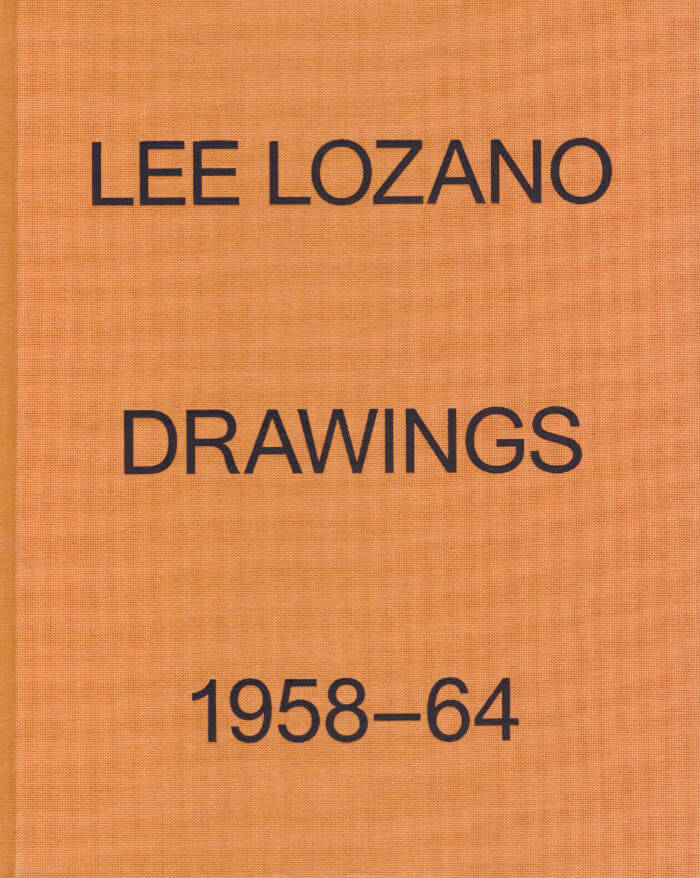
Lee Lozano: Drawings 1958-64
This 640-page volume comprises drawings from a critical six-year period in the development of American painter and conceptual artist Lee Lozano's (1930-99) practice. Her daring, facetious sketches investigate issues of gender and the body through the erogenous anthropomorphization of tools.
Lee Lozano: Drawings 1958-64 includes two newly commissioned essays by Helen Molesworth and Tamar Garb.
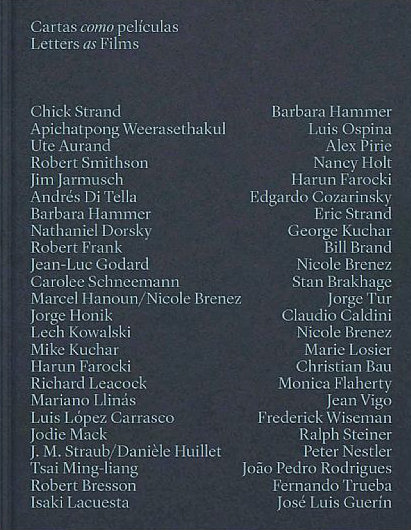
Letters As Films
Fascinating letters and ephemera from experimental filmmakers such as Maya Deren, Nathaniel Dorsky, Jim Jarmusch, Harun Farocki, Jean Vigo and more.
More than 50 postcards, manuscripts, typewritten letters and even emails are presented alongside stills, drawings and storyboards to create a stunning epistolary archive many years in the making. Curator and Punto de Vista International Documentary Film Festival director Garbiñe Ortega has compiled these materials in an effort to "create echoes and reverberations between materials which, as in a film, thanks to the editing, take on another meaning beyond their specific content."
The volume includes correspondence exchanged among filmmakers Jodie Mack, Jonas Mekas, Stan Brakhage, Jorge Honik, Claudio Caldini, Lech Kowalski, Nicole Brenez, Marcel Hanoun, Nathaniel Dorsky, George Kuchar, Nazli Dinçel, Norman McLaren, Maya Deren, Jean Vigo, Richard Leacock, Monica Flaherty, Richard Linklater, Gabe Kingler, Robert Breer, Robert Smithson, Nancy Holt, Fernando Trueba, Jean-Marie Straub, Jim Jarmusch, Hanun Farocki, Robert Frank, Fred Wiseman, Margaret Tait, Ute Aurand, Terrence Malick, Lynne Sachs and Gunvor Nelson.
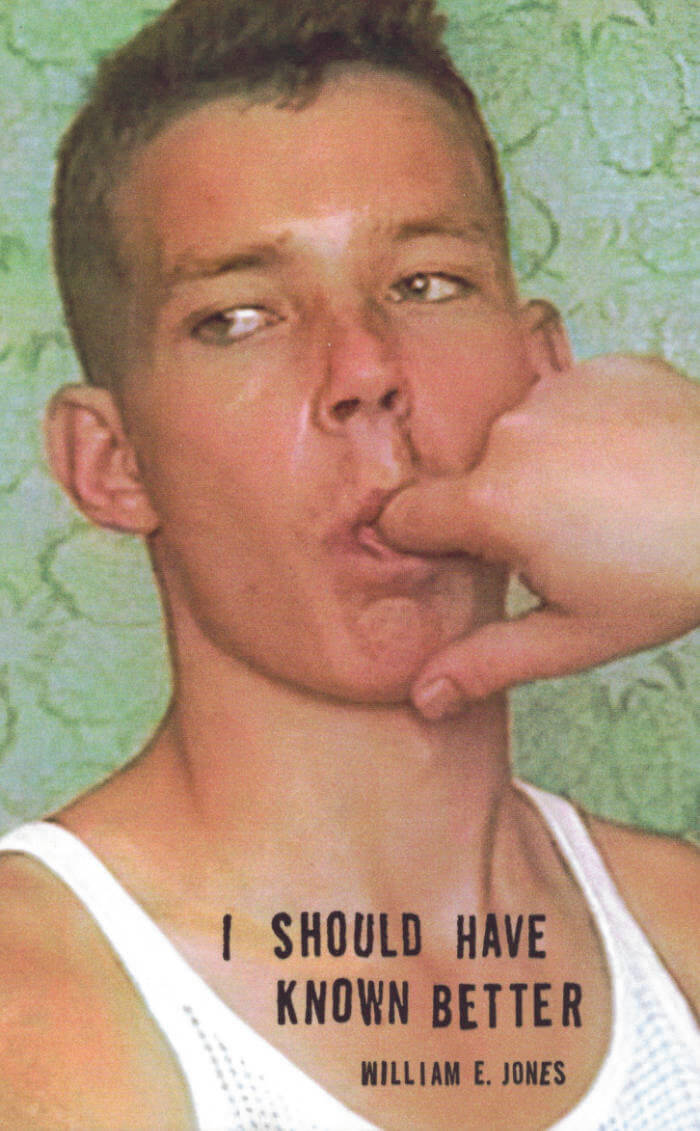
I Should Have Known Better
I Should Have Known Better is a sequel to the sleeper hit I'm Open to Anything (2019), expanding the original's scope and ambition.
I Should Have Known Better's first person narrator, while working at a dead-end job in Los Angeles during the mid-1990s, reconnects with his best friend Moira, recently returned from Central America, and makes a new friend, Bernie, who teaches the history of photography. The two of them convince him to pursue a master's degree as a way of escaping the unrewarding life of a video store clerk. Once the narrator is exposed to an academic environment, he takes a dim view of the education that art school has to offer, but is happy to meet a group of talented fellow students who become close friends. He encounters a number of art world figures, ranging from the brilliant to the abject, who disabuse him of his illusions. The narrator has his most instructive experiences off campus, especially a love affair with the handsome and mercurial Temo, an insolent rich kid who leads a double life. Together they explore their sexual limits in scenes of bracing explicitness. I Should Have Known Better bears witness to the last gasp of Los Angeles bohemia at the end of the twentieth century.
The novel paints precise portraits of inspired eccentrics devoted to pursuing their dreams, "shopping artists" who believe in nothing but hedonism, and latter-day leftists who find themselves directionless after the fall of communism. Above all, the book pays tribute to the impulsive experiments and intense friendships of youth.

Auditing Intimacy
Office for Joint Administrative Intelligence
Auditing Intimacy is a collection of postal correspondence, photographs and declassified documents produced by Chris Dreier and Gary Farrelly between 2015 and 2020 under the banner of their shared practice The Office for Joint Administrative Intelligence. In a spirit of transparency and full disclosure, the publication contains a certified, independent and critical audit of the practice by Alicja Melzacka. The project was undertaken to commemorate the fifth anniversary of O.J.A.I.
Edited by Chris Dreier and Gary Farrelly
Artworks by Chris Dreier and Gary Farrelly
Essay by Alicja Melzacka
Design by Zero Desk
Documentation by Pauline Miko
Published by Fantôme Verlag
174 pages
Office for Joint Administrative Intelligence is the collaborative practice of artists Chris Dreier (DE) and Gary Farrelly (IRE/BE). The work is fuelled by a recurring obsession with architecture, infrastructure, finance, institutional power and DIY ritualism. O.J.A.I. pursues a strategy of self-institutionalisation where tools and codified rules of engagement are appropriated from economic and political infrastructures for the purposes of structuring intimacy and conjuring autonomy.